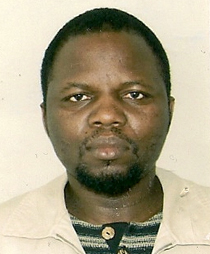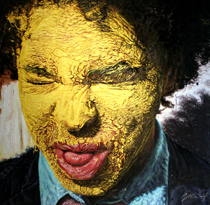Shingi remembered how he beat Ma Chido, the youngest wife, for spending too much time at a church meeting. Her maiden name was Grace but she was called by her son’s name, Chido. She had been forced into an early marriage, discontinuing school. She talked of going to Salisbury to join her Aunt who wanted her to continue her education using the night school programs available to natives.
When the beating happened, Shingi was sitting in his hut, which he had built when he turned 17. His father had bullied him into building a hut of his own, arguing that it was not good for him to live in the main house at his age.
“During my time, we weaned ourselves from our parents even before our things started frothing. You good for nothing youths of today continue suckling even when you get married.â€
Shingi was eating sadza with derere – Okro – soup when he heard heavy footsteps coming at a quick pace. His father’s large figure emerged carrying a log that could have dislocated the shoulder of a lesser man. His shadow passed Shingi leaving a smell of snuff and sweat. Shingi quickly finished his meal and put the plates away. He could however not move away at this moment for fear of a reprimand from his father, who had acknowledged his presence with a scornful look that spoke volumes. Shingi knew he was supposed to be cultivating the maize field. He had chosen to roof his leaking house, a task he found easier than the back-breaking job of tilling the land with a hoe. His father dropped the log at Ma Chido’s hut and headed in Shingi’s direction, a skimpy brown shirt that used to be white hanging loosely on his bulky body.
“Where is Ma Chido?’â€
“Gone to Church,†Shingi answered, relieved that his father was directing his attention at another person.
“Church, church. This church business is getting out of hand. What these blacks see in a white God and a white Jesus I don’t know.†He shook his head and spread his palms sideways disappearing into the main house.
Shingi heard him sniffing his snuff and later coughing asthmatically. He heard singing from the path that led to the well. Three women wearing chitenge – wrappers – appeared. Ma Chido was among them leading them in a song they had just learnt in Shona. Ma Chido sang in a beautiful and lilting voice. The song was about escaping this world to a place where there was no suffering. Ma Chido led the other women in singing:
I am going home
It could be today, tomorrow,anytime
I am going home
I am tired of this wicked world
O Sweet Jesus take me home
For I am weary.
O Sweet Jesus take me home
Shingi was touched by the message – not because of the song’s reference to the afterlife. He realized that for Ma Chido the song had an added meaning as far as her misery was concerned. Everyone in the village knew that Ma Chido was one of the saddest women. Choso beat her all the time and many people feared for her health. She was also too young to be married to such an old man. Her husband was very possessive and always feared she would leave him for a younger man. Shingi felt the song was not merely talking about the afterlife but implicitly referred to her unhappy marriage.
When Shingi’s mother was alive at least Ma Chido had a shoulder to lean on. The older wife felt for the poor woman whom she consoled whenever their husband beat her. MaShingi knew how to stand the beatings, which she understood as part of being an African wife. Now that she was dead, Ma Chido had no one to console her. There was great rivalry and even hatred between the other two women, who both despised each other and Ma Chido.
“Ma Chido!,†a voice cracked like a piece of canvas being ripped by hand. There was a tinge of menace in the voice. The women stopped singing in the middle of a verse.
“Coming. Am coming,†Ma Chido answered sheepishly, and excused herself.
She trotted to the house, her rosary swinging around her slender neck. She was dark and smooth like a plum. She had just plaited her hair in a new fashion with mounds of braids standing beautifully on her head. Shingi heard his father shouting.
“How many times am I going to tell you that this church business should not take centre stage over your marriage. Are you married to the priest?â€
“No.â€
“Then why are you always at church? Answer me. Today is not Sunday.â€
“I have some roles in the women group.â€
“And those roles are more important than housekeeping.â€
“No Father of Chido.â€
“From today I don’t want to see you anywhere near that damned church. Do you hear!â€
“I do my husband.â€
Shingi was not surprised to hear his father stop his wife from going to church. He had not encouraged any member of his large family to attend any church services. His hate for whites and all their institutions was legendary. Shingi also remembered a confrontation he had witnessed between his father and a deputation that had come to tell him about the building of a house for a priest. The emissaries were led by Jeremiah, a bold and well-adjusted man who dressed like a townie – clean clothes complete with a hat always worn at a jaunty angle, with a cigarette perennially dangling from his lips. He had worked in South Africa before coming back home. Unlike Choso, Jeremiah spoke reverently of South Africa. He said the place had more trains and cars than Salisbury. Some villagers, Choso among them said he had been a tsotsi- a spiv.
“I tell you, you are wasting your time building a house for the black priests. It is these stupid black priests who are being used together with black policemen and teachers to kill our culture. I lived with a white man for a long time and I understand all his tricks in cowing black people. He can’t penetrate our society without using some fools among us to champion his causes. Oh yes, he uses fools like black priests, chiefs and policemen. Since convincing Lobengula to sell our land he has continued to use blacks in whatever causes he wants to impose,†Choso said.





No Comments so far ↓
There are no comments yet...Kick things off by filling out the form below.